#dave simpson
Text
Jeff Buckley: Grace under fire
Dave Simpson, The Guardian, 1 May 1998
Singer Jeff Buckley lived in the shadow of his father Tim's death. Dave Simpson remembers meeting the visionary of pain and loss, and hears the demo recordings of Buckley's planned second album
WHEN JEFF Buckley walked fully clothed and singing into a Memphis marina on the Mississippi river last year he closed one of the briefest, brightest chapters in rock. Bernard Butler, the former Suede guitarist, recently said: "If it wasn't for Jeff Buckley I wouldn't be doing any of this. Seeing him restored my faith in music." High praise, matched only by Led Zeppelin's high priest, Jimmy Page: "Jeff Buckley was one of the greatest losses of all."
Buckley left just one completed album, Grace, rightly hailed as a masterpiece. But the demos for what would have been his second, planned to be called My Sweetheart The Drunk, are released by Columbia this month.
Demos, because apparently Buckley was dissatisfied with the sessions (with former Television mainman Tom Verlaine) and planned to burn the recordings and start again, beginning with a rehearsal planned for the very night he died. Sketches contains some of the most stunning and intriguing rock performances ever committed to tape. It's impossible to decide which are the more affecting: the staggering soulful beauty of a song like 'Everybody Wants You', or the references to funerals, cemeteries and suicide that shadow the album; the fragile magnificence of 'Opened Once', or the album's pervasive sense of loneliness.
That Buckley could have even contemplated trashing this music is the mark either of an acute perfectionist or of an extremely disturbed mind. And is it just hindsight that gives lines like 'Witches Rave''s "I'll never make it out alive" such an eerie psychological pull?
Equally bizarrely, Buckley's mysterious demise aged 30 on May 29 1997 (he told a friend he was "going for a swim", although many have speculated it was suicide) appeared a curious twist of destiny. His natural father, sixties singer Tim Buckley, had died tragically (from a drug overdose on June 29 1975) at 28, and his son was forever stalked by the Buckley legend. "Eternal life is on my trail," Jeff once sang, knowing full well that he was carving his own myth.
I first met him in 1994, in the first flush of critical fanfare for Grace. I was sent along to get a handful of quotes for a music paper, and we ended up talking for over an hour. This was typical of Jeff. If he liked you, you were in. It didn't concern him that he had other, more important interviews scheduled and that his press officer was frantically trying to get his attention. Just as in his music, Jeff Buckley knew all the rules but routinely bent them to suit his own purposes. In conversation as on stage, he'd play up to the image he'd created — the moody, magnificent James Dean of rock — and shatter it in an instant. Expecting a tortured artist, I was surprised by his mischievous humour.
He was a bag of contradictions, someone who shaped his surroundings (as we talked, he selected Duke Ellington to play in his portable CD), whilst simultaneously claiming to be ill at ease, both with people and daily situations.
He could be remarkably, even suspiciously eloquent. He said of his voice: "I feel it and I wanna go there. Every feeling has an articulation. It's like when you get drunk or you try Ecstasy for the first time and all your secrets come tumbling out, and you say things you've never said before."
His music, he insisted, was equally natural. "Do you think about what you're doing when you're making love?" he asked, using a favourite metaphor. He was the sort of person who would flirt with a bathchair. His entire arsenal of vocal mannerisms seemed to be filched from Dean's simmering vocabulary. But it became obvious that Jeff Buckley was carrying around a set of troubles for which there were no easy answers.
Buckley's early life around California was fairly blissful, even though he was brought up by his Panamanian mother and two successive stepfathers. He picked up his grandmother's guitar aged six and learned about harmonies by singing along with his mom to the radio as it blared out tunes by Stevie Wonder and Sly Stone. His favourite record was Terry Jacks' premature-death anthem 'Seasons In The Sun'.
When Buckley was 12, his stepfather gave him a copy of Led Zeppelin's Physical Graffiti (later influences included Nina Simone, Sex Pistols and the Cocteau Twins), and Jeff began writing songs. His first, he remembered, was "something stupid about a break-up." In his teens at college in Los Angeles he penned 'Eternal Life', which included the lines: "Got my red glitter coffin, man, just need one more nail", about the rock-death myth.
Buckley moved to New York, building up a fearsome reputation as a live performer in and around East Village. By the time a reworked 'Eternal Life' and other equally harrowing but strangely beautiful songs such as 'Dream Brother' appeared in his set, many in the audiences (which often included the likes of Nick Cave) would scream in rapture. Others would find the outpourings of naked emotion so disquieting they'd leave the room.
"I'm used to being hated," he told me. "It's something I've had ever since I was a kid. It hurts, but there's nothing I can do. I'm not lying." Neither did he pull his punches. At almost the exact time as he secured a record deal, Jeff managed the potentially career-threatening feat of being seen to "diss" labelmate Bob Dylan.
"I was at A Hole In the Wall in New York, and I'd seen Dylan the night before," he revealed. "So I did an impression of him singing 'I Want You'. I did an impression of him singing 'Grace'. I talked about how he sailed through some songs and was really brilliant on others. People were shouting 'But he's still got it, right?' And I'm going: 'No. This is not Blonde On Blonde. This is him now. You guys are living in the past'."
In the audience were Bob Dylan's manager, his assistant manager, and his best friend. "Man, the next day I was in Tompkins Square Park, staring at the ground with the snow falling, wishing I was never born. My A&R man saying, 'Well, Bob feels dissed.' But I really didn't... I just... loved him so much I sent him up." Buckley wrote a personal apology — and then when Grace came out, critics hailed the "new Bob Dylan".
Around this time people began making the inevitable, if misleading musical comparisons between Jeff and Tim Buckley. Both were singer-songwriters with distinctive voices. Jeff never knew his father (he vaguely remembered their one meeting "on a beach somewhere"). He wouldn't accept that even his smouldering looks came from his father.
"I look like my mother," he insisted. "I have my own choices, and I have my own life. All I know is that the guy's dead. I had a very musical environment growing up, that didn't involve him. Maybe I was imbued with the same things, the same parts. But it ain't his voice, and it ain't my voice, and it wasn't his father's voice or his father's father before. It's just the voice that's passed down. My grandfather sang, apparently. And my grandfather on my mother's side sang! I come from a line of singers. But my choices are my choices."
Buckley's resentment was palpable. Was he angry because his father abandoned him? "It's private," he mumbled, "but I went through, and am still going through a period of trying to figure out... why? The main question you wanna answer is did he love you or not, and if so, why didn't he love you enough to..."
Stick around. He didn't need to finish the sentence. The force driving Jeff Buckley was that he never recovered from the rejection.
He clung on to other people. "All I want to do is love everyone," he sang. There was a scarcely publicised affair with Cocteau Twin Elizabeth Fraser (who once recorded his father's 'Song To The Siren'), even curious rumours concerning Marianne Faithfull. His idealism was mirrored by a profound hatred of everything he deemed false, from colonialism to MTV and supermodels. But his chief obsession was that he would somehow "fail the music".
But what if Jeff wasn't involved in music? His answer came in instalments. "I think... that I... would be... a corpse."
We met again, but the last time I saw him he seemed exhausted by the road, itching to get back into the studio. There were narcotic rumours, but his body was found clean. When the news of his death came through it seemed like a dark joke, the kind of macabre prank Buckley would have dreamt up. It wasn't.
During his life, people talked of "Tim Buckley's son", but from now on it could easily be "Jeff Buckley's father". Jeff would have laughed at that. But his powerful musical legacy will be his final vengeance.
23 notes
·
View notes
Photo
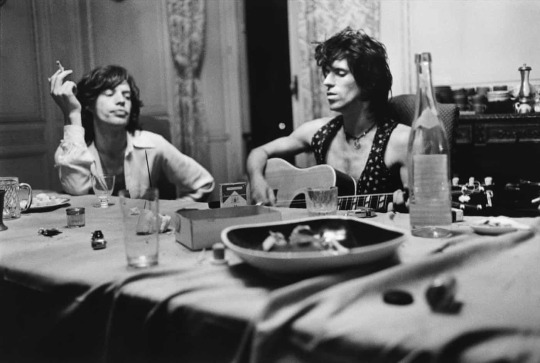
The Story: ‘People took so many drugs, they forgot they played on it’ – stars on Exile on Main St, the Rolling Stones’ sprawling masterpiece
The Writer: Dave Simpson
(photo of Mick Jagger and Keith Richard at Villa Nellcôte in 1971: Dominique Tarlé)
#rolling stones#exile on main street#rock#music#classic albums#guardian#dave simpson#mick jagger#keith richards#villa nellcote#1971#interviews
4 notes
·
View notes
Photo
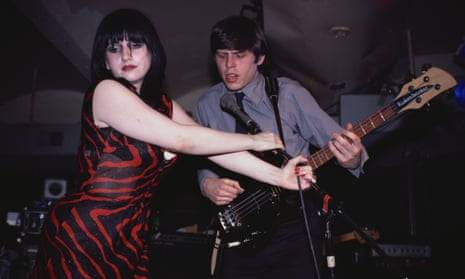
Contort yourself! The mutant disco mayhem of New York’s Ze Records
Disgusted with Britain’s ‘cruel’ aristocracy, Michael Zilkha left to champion a generation of party-starting punk-funk bands. As he returns as a book publisher, he remembers that wild sceneJohn Peel once said that Ze Records was “the best independent label in the world”. The Face magazine called it the “world’s most fashionable”. Between 1978 and 1984, the New York record company’s incredible roster included Kid Creole and the Coconuts, Lydia Lunch, Was (Not Was), Lizzy Mercier Descloux, James Chance and Suicide, who were mostly rather extreme characters.“It felt more like a repertory company than a record label,” says the co-founder Michael Zilkha. “We’d have these crazy showcases, with everyone except Lydia, who was outside picketing because she felt I hadn’t given her enough tour support.” Continue reading...
https://www.theguardian.com/music/2023/mar/16/contort-yourself-the-mutant-disco-mayhem-of-new-yorks-ze-records
0 notes
Text
Dave: its like my bro always used to say
Bro: Dave, you’re dumb as a mule and twice as ugly. If a strange man offers you a ride I say take it.
Dave: lousy traumatic childhood
#submission#source: the simpsons#homestuck#incorrect homestuck quotes#dave strider#dirk strider#mod terezi#i would have taken the stranger up on the ride if bro was my dad#i'm just saying it couldn't have gotten worse
78 notes
·
View notes
Text
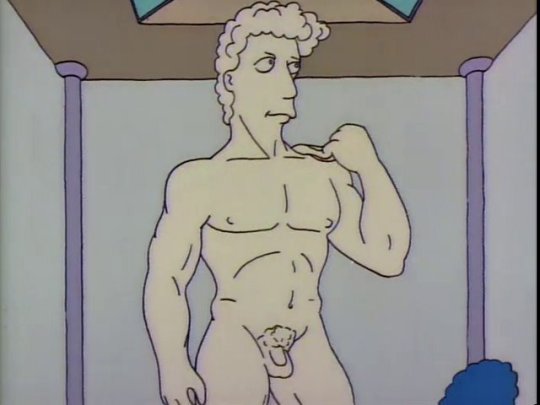
#the simpsons#itchy & scratchy & marge#michelangelo's david#michelangelo's dave#david#michelangelo#poll
87 notes
·
View notes
Photo
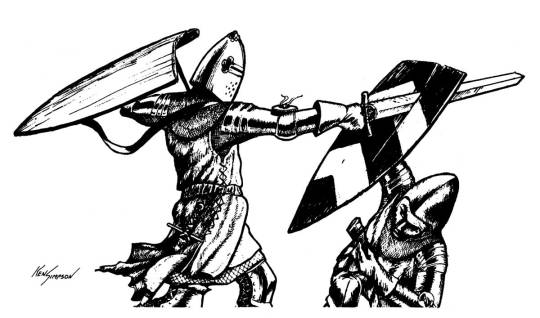
Gunch! (Ken Simpson, from War Cry, historic miniature wargame rules by Dave Petrowsky, Judges Guild, 1981)
#War Cry#Ken Simpson#medieval#knight#knights#sword#shield#gunch#Judges Guild#wargame#miniatures rules#miniature wargaming#miniature wargame#historic wargaming#Dave Petrowsky
184 notes
·
View notes
Text
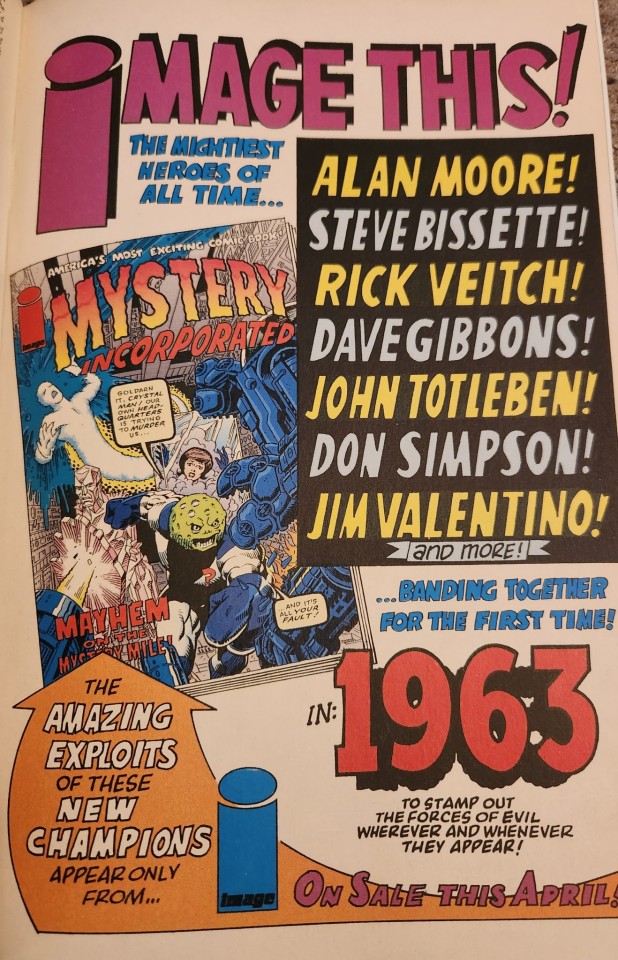
#comics#1963#alan moore#steve bissette#rick veitch#dave gibbons#image comics#jim valentino#don simpson#john totleben
51 notes
·
View notes
Text
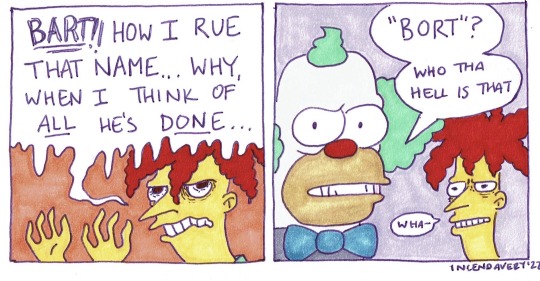
it’s fanart fthursday
#comics on tumblr#artists on tumblr#the simpsons#sideshow bob#krusty the clown#davedrawsstuff#dave draws fan art#art that isn’t corvids
522 notes
·
View notes
Text
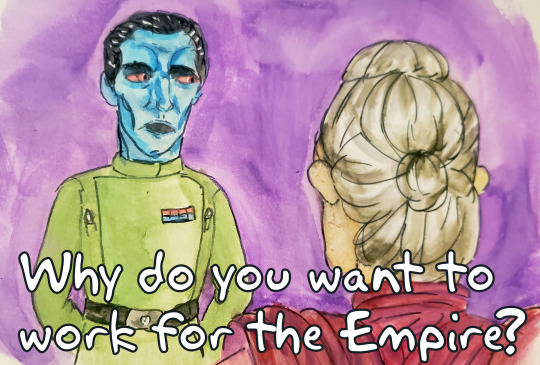
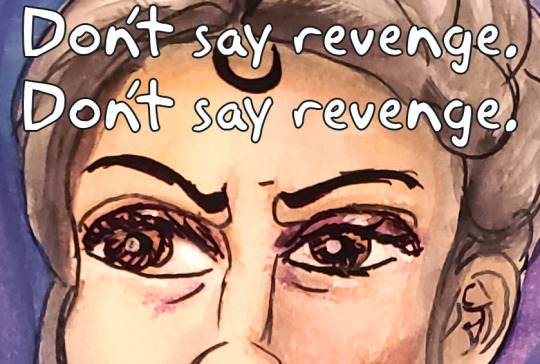
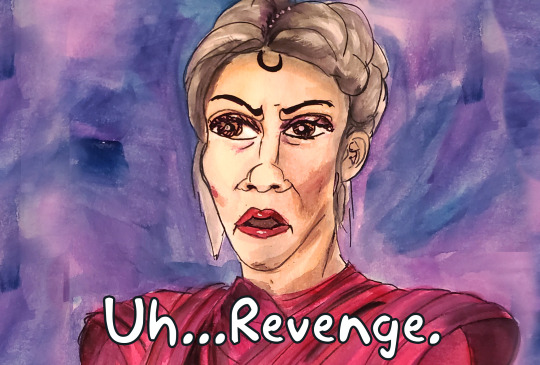
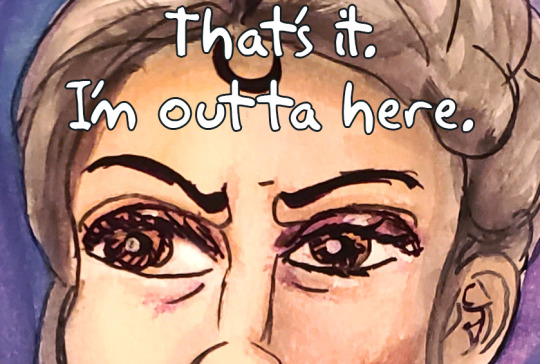
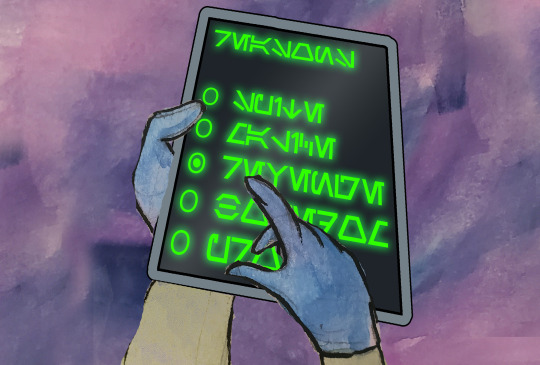
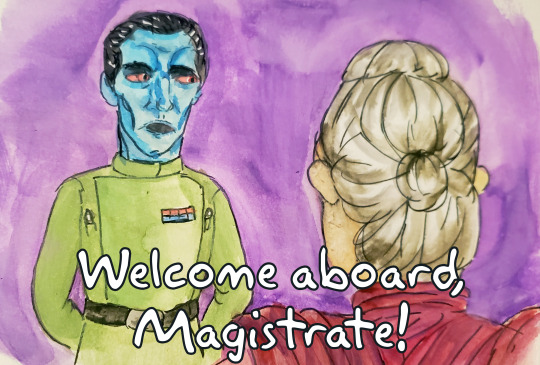
Did "Tales of the Empire" just do this?! Did they steal a "Simpsons" bit?! I couldn't stop laughing. What does hand-to-hand combat have to do with engineering? It's so short! Where's Eli, DAVE?! We could have had a season of The Bad Batch that wasn't truncated, but we got this instead?!
#don't say revenge don't say revenge#simpsons did it#wheres eli dave#morgan elsbeth#tales of the empire#thrawn star wars#grand admiral thrawn#thrawn#thrawn memes#star wars humor#mitth'raw'nuruodo#sith witch#star wars morgan#star wars tales of the empire#morgan mandalorian#chiss ascendancy#may the fourth be with you#don't say revenge#classic simpsons
7 notes
·
View notes
Text
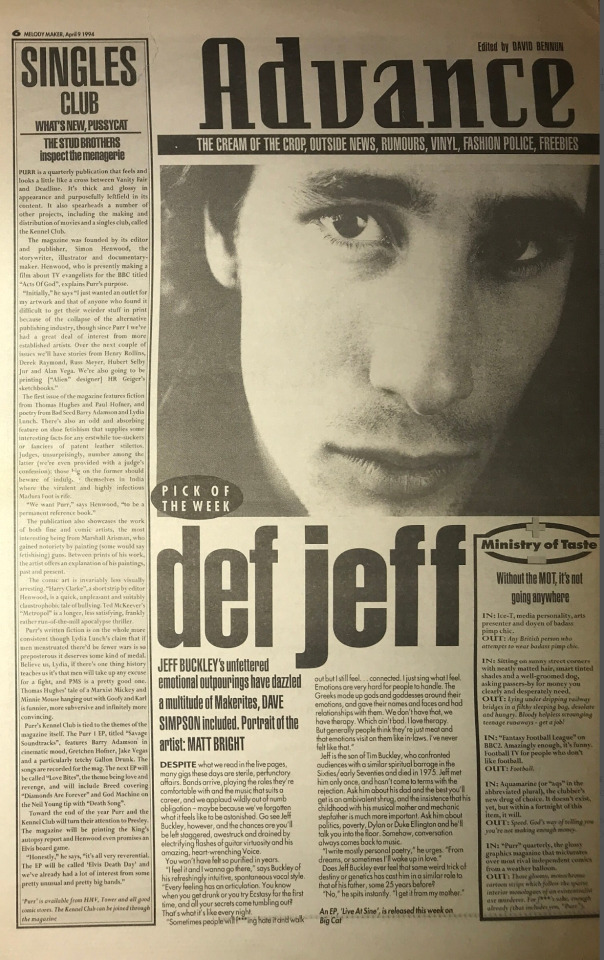
Melody Maker, April 9 1994
Pick of the Week
Def Jeff
Jeff Buckley's unfettered emotional outpourings have dazzled a multitude of Makerites, Dave Simpson included. Portrait of the artist: Matt Bright
13 notes
·
View notes
Photo
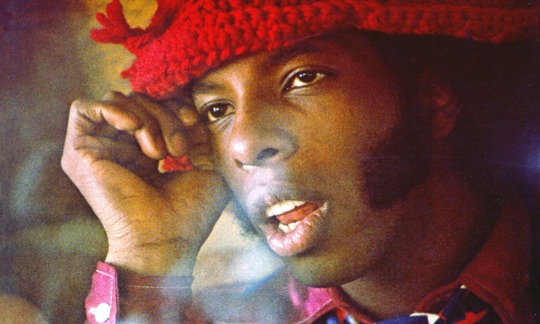
The Story: ‘A nation’s fabric unravelling’: stars on Sly Stone’s There’s a Riot Goin’ On at 50
The Writer: Dave Simpson
(Sly Stone photo: Steve Paley)
#sly stone#sly and the family stone#theres a riot goin on#music#rock#funk#r&b#soul#guardian#dave simpson#steve paley#classic albums
0 notes
Photo

Punched, insulted and excoriated in song … our critics on the artists who hit back
In a shocking attack, the ballet director Marco Goecke smeared dog excrement in the face of Wiebke Hüster in retaliation for her review. Yet it isn’t the first time an artist has assaulted a critic. Our writers share their worst momentsI was biffed on the head by David Storey in 1976 after describing his play Mother’s Day as “a stinker”. But that rankled less than sustained verbal assaults by Jonathan Miller late in his career. He once sent me a New Year’s Day card urging me to cease my “foul pork scratchings” and told an interviewer that ideally directors should be reviewed by their peers rather than “nonentities like Michael Billington”. Better a Storey thump than a Miller moan. Michael Billington Continue reading...
https://www.theguardian.com/culture/2023/feb/14/critics-on-the-artists-who-hit-back
#Culture#Newspapers#Newspapers & magazines#Media#Dance#Television#Art#Tim Minchin#Michael Billington#Hannah J Davies#Phil Daoust#Lyndsey Winship#Adrian Searle Arifa Akbar#Dave Simpson#Culture | The Guardian
0 notes
Text
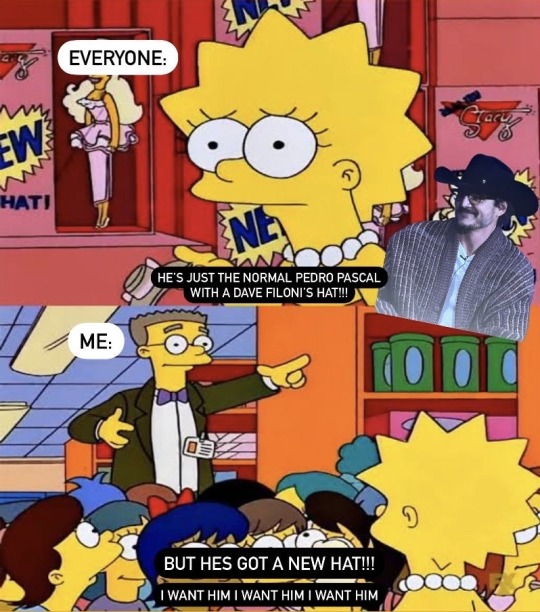
The man does nothing and I *swoon*
31 notes
·
View notes
Text
DAVE: *faints*
JADE: quick! perform cpr!
JOHN: uh… 🎵 i see a bad moon risin’… 🎵
JADE: thats CCR!
#submission#source: the simpsons#dave strider#jade harley#john egbert#mod terezi#alas poor davey i knew him well
59 notes
·
View notes
Text
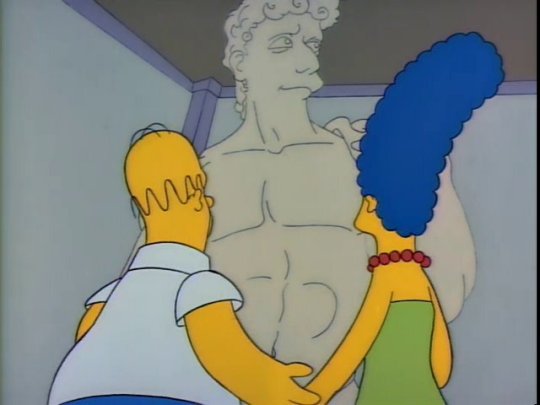
#the simpsons#itchy & scratchy & marge#marge simpson#homer simpson#michelangelo's david#michelangelo's dave#david
63 notes
·
View notes
Photo

Chariot advances into battle (Ken Simpson, from War Cry by Dave Petrowsky, miniature wargame rules for ancient through medieval periods, Judges Guild, 2nd edition 1981) Typical of its time War Cry used the WRG basing standard, with written orders for units in each turn.
#War Cry#Ken Simpson#Judges Guild#chariot#wargame#miniature wargaming#miniature wargame#miniature rules#ancient#horse#Dave Petrowsky
66 notes
·
View notes